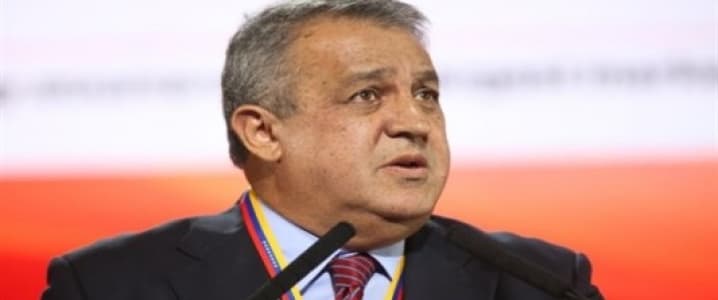Venezuela’s economic, humanitarian and political crisis has not shown any sign of improving since the opposition and the government started “the dialogue” mediated by the Vatican and UNASUR. The crisis has worsened due to a lack of political will from the government, which has been reflected by unfulfilled promises. Just to mention one, the release of political prisoners.
Every-day life has become a challenge due to the worst economic and political crisis in Venezuela’s republican history; becoming one the world’s worst economies, with rising crime and corruption rates, daily power blackouts and medicine and food shortages (of more than 80 percent). The struggle to get even the most basic lifesaving supplies such as antibiotics, is forcing the socialist government to finally recognize the crisis; accepting medical donations from the United Nations Organization.
The last published inflation figures from the Venezuelan government were in December 2015, stating it at only 180 percent. However, according to the International Monetary Fund (IMF), inflation in 2016 is well over 700 percent and an increase of more than 2,000 percent is expected in 2017.
On November 30th, OPEC agreed to the first production since 2008, agreeing to reduce production by 1.2 million barrels per day (bpd), limiting supply at 32.5 million bpd from January 2017, in an attempt increase oil prices. The Venezuelan Oil Minister and president of Venezuela's state oil company PDVSA called the last agreement on his Twitter account a “historic agreement” and “another achievement” of the Bolivarian Revolution. Related: Can Carbon Taxes Kill Pipeline Opposition?
Venezuela agreed to reduce its oil production by 95,000 bpd, with a monthly average production level of 1.972 million bpd. OPEC has taken Venezuela’s reference production level as 2.067 million bpd; the production in October 2016 (based on secondary sources), while in September 2016 it was 2.090 million bpd. On the other hand, the official PDVSA website shows that Venezuela produced 2.534 million bpd in September 2016, i.e., a difference of 444,000 bpd. Why this inconsistency between the official PDVSA’s source in relation to the secondary source, i. e., OPEC’s reference?
So far, the government has explained this difference between official PDVSA data and the secondary data as: “question concerns oil production in the oil belt of the Orinoco River, which has heavy oil that needs to be upgraded through special capacities – around 500,000 bpd that are not included in the agreement”.
PDVSA is struggling to escape bankruptcy. On November 2016, the company missed $404 million in coupon payments on three of its bonds and it has now activated a 30-day grace period after not meeting the full coupon payments on its 2021, 2024 and 2035 bonds. Furthermore, PDVSA has missed the opportunity to increase investment and production in the last ten years, when the average oil Brent prices was $80 as opposed to $53 a barrel on December 8th 2016. Related: Stormy Seas Ahead For Oil Markets
A competitive oil company normally increases volume of production in order to increase revenues, reducing costs via other mechanisms. On the contrary, PDVSA has reduced production while increasing different types of expenditures, such as social development programs not related with the oil industry. By 2015, the total number of employees (including non-oil subsidiaries) was 150,032, more than five times the number of employees reported in 2003.
Venezuela’s dwindling significance within OPEC can be evidenced by Iran’s ability to ramp up production by 90,000 bpd to achieve 3,797 bpd, boosting its production by 1 million bpd over its 2015 average.
Venezuela has increased its imports of naphtha and light oil as diluents for the extra-heavy oil from the new Orinoco Oil Belt projects, due to the limited local refining capacity. The imported diluent strategy implies a significant additional production cost in these new areas.
The increase of oil prices since the OPEC agreement will allow a price increase on PDVSA bonds, as far as the price compensates the extraction cost as well as a reduction of default probability for the credit default swaps (CDS). The risk of default for the next years will remain high until political and economic stability is achieved.
Venezuela’s oil industry will need better management in the future, because even with an increase in oil prices, the industry faces significant operational difficulties that will take time to overcome. Around 96 percent of the country’s foreign currency earnings come from the oil industry, and with the collapse of the world’s oil prices, revenues have fallen more than 50 percent.
In addition to declining revenues, oil production has dropped by about 49 percent (from approximately 3.5 million bpd when Chávez took power in 1999 to 2.067 million bpd by today’s OPEC values) in 17 years of “Bolivarian revolution”. Moreover, with the 4.6 percent reduction for 2017 recently approved by OPEC, the road ahead looks bleak for the Venezuelan economy.
By Luis Colasante for Oilprice.com
More Top Reads From Oilprice.com:
- Oil Prices Climb To 17 Month Highs As Saudis Vow To Cut Even More
- How Long Can OPEC Remain United For?
- Where Will U.S. Oil Production Go In 2017?


















